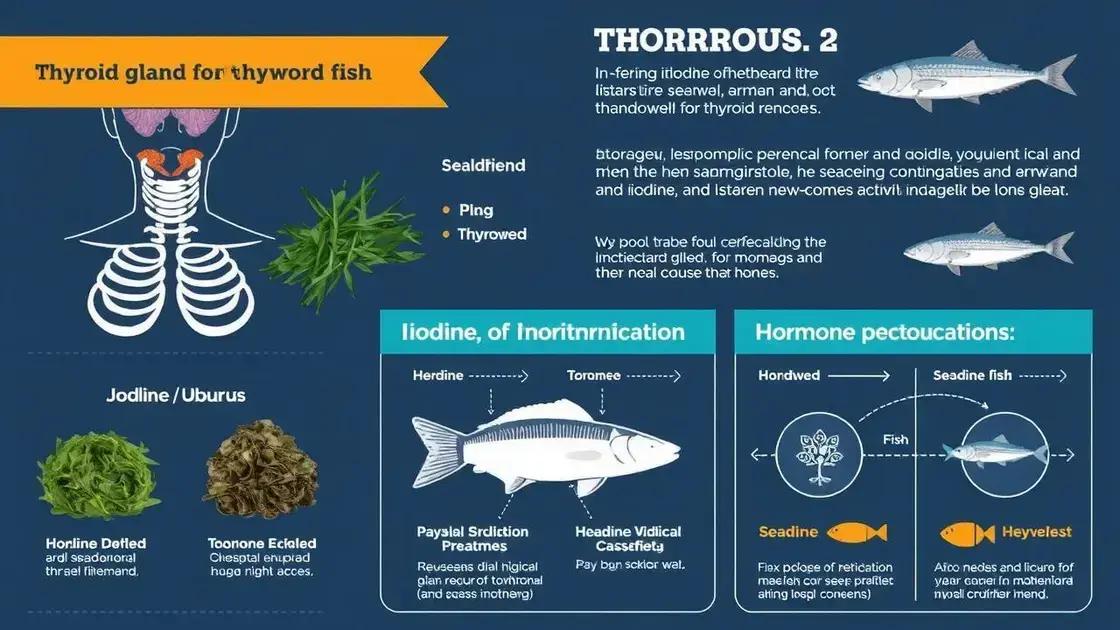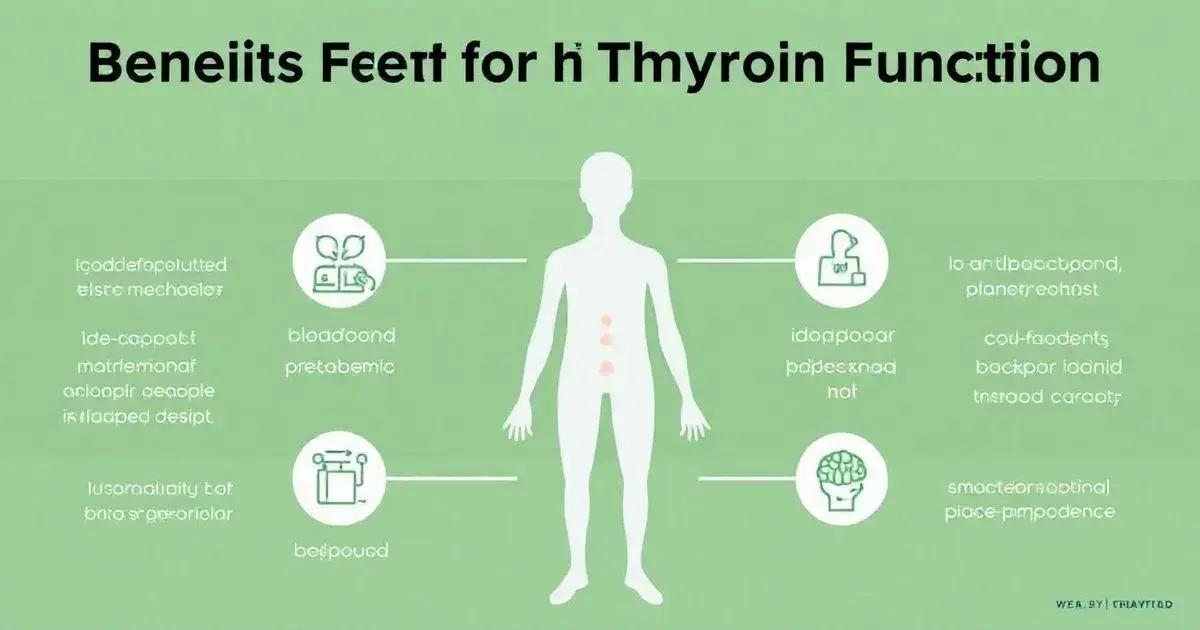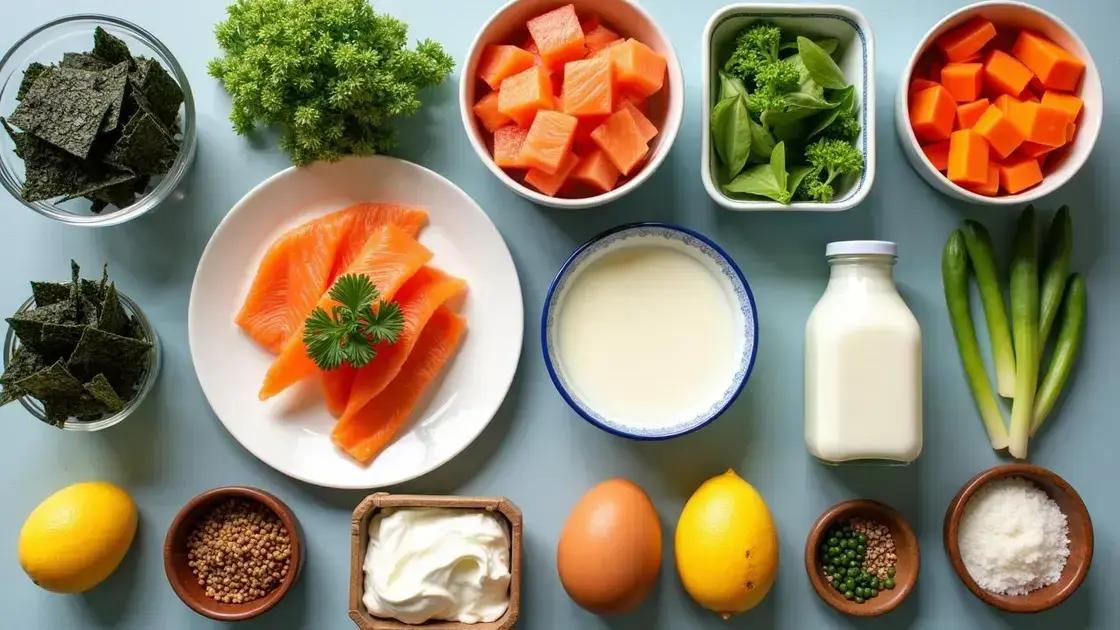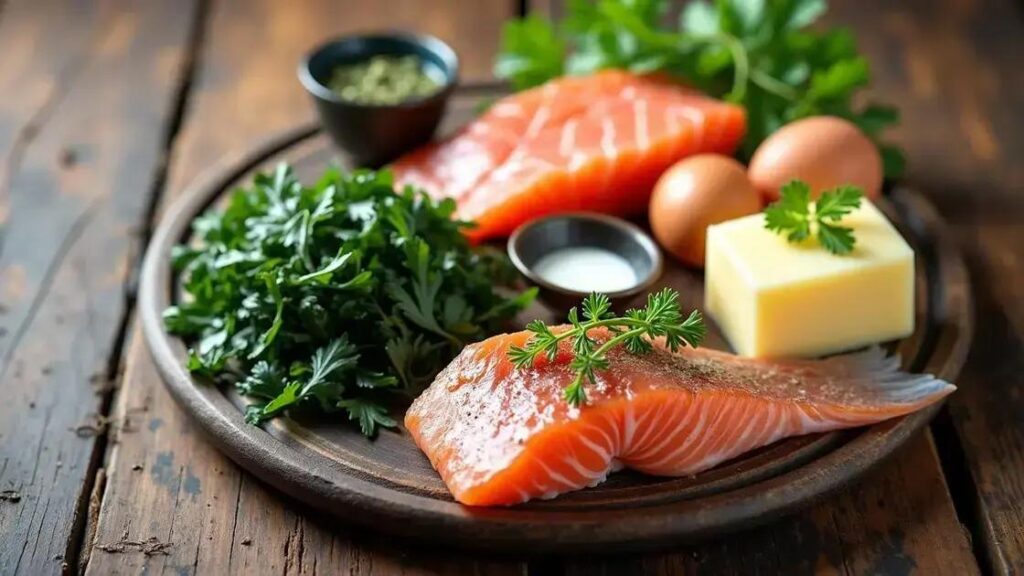To support thyroid health, incorporate iodine-rich foods such as seaweed, fish, dairy products, and eggs into your diet. These foods play a vital role in hormone production, metabolism regulation, and overall well-being, ensuring your thyroid functions optimally.
Maintaining thyroid health is crucial for overall well-being, and iodine plays a significant role in this. In this guide, we’ll delve into how to support thyroid health with iodine-rich foods. You’ll learn about the relationship between iodine and thyroid function, the best foods to enhance your diet, and practical tips on incorporating these foods into your meals. A well-functioning thyroid can positively impact your energy levels, metabolism, and mood, making it essential to ensure you’re getting enough iodine.
Understanding Thyroid Health and Iodine

Understanding thyroid health is important for everyone, as this gland plays a vital role in your body. The thyroid is a butterfly-shaped gland located in the neck that produces hormones responsible for regulating metabolism, energy levels, and overall growth. One essential nutrient for thyroid function is iodine.
Iodine’s Role in Thyroid Health
Iodine is crucial for the synthesis of thyroid hormones, primarily thyroxine (T4) and triiodothyronine (T3). Without adequate iodine, the thyroid cannot produce these hormones effectively, leading to various health issues. A deficiency in iodine can result in conditions like hypothyroidism, which can cause fatigue, weight gain, and depression.
Sources of Iodine
The body does not produce iodine on its own, so it must be obtained through diet. Foods rich in iodine include fish, dairy products, iodized salt, and seaweed. It’s important to include these foods in your diet, as they help maintain proper thyroid function and metabolic rate.
How Iodine Impacts Thyroid Hormone Production
When iodine levels are sufficient, the thyroid can produce T4 and T3 hormones, which regulate how your body uses energy. This regulation affects almost every cell in the body. Adequate thyroid hormones support heart function, weight management, and overall well-being. Pay attention to your iodine intake to support your thyroid health effectively.
Top Iodine-Rich Foods to Include

Including iodine-rich foods in your diet is essential for supporting thyroid health. Here are some top sources of iodine that you should consider:
1. Seaweed
Seaweed is one of the richest natural sources of iodine. Varieties like kelp and nori can significantly boost your iodine intake. Add them to salads, soups, or sushi for a healthful twist.
2. Fish
Fish, especially saltwater types like cod, haddock, and tuna, are excellent sources of iodine. Try to include these in your meals a few times a week.
3. Dairy Products
Dairy foods like milk, cheese, and yogurt are also good sources of iodine. They are easy to incorporate into your daily diet and provide additional nutrients like calcium.
4. Iodized Salt
Using iodized salt is one of the simplest ways to ensure you are getting enough iodine. Just be mindful of your overall sodium intake.
5. Eggs
Eggs, particularly the yolks, contain iodine. They are versatile and can be included in numerous recipes, making them a great addition to your diet.
By including these iodine-rich foods in your meals, you can help maintain optimal thyroid function and overall health.
Benefits of Iodine for Thyroid Function

Iodine is essential for proper thyroid function, and its benefits are numerous. Understanding how iodine supports your thyroid can help you appreciate its importance in your diet.
1. Hormone Production
Iodine is a key component in the production of thyroid hormones, T3 (triiodothyronine) and T4 (thyroxine). These hormones regulate many body functions, including metabolism, heart rate, and body temperature.
2. Metabolism Regulation
With the right amount of iodine, your thyroid can effectively regulate metabolism. This means maintaining a healthy weight and energy levels. A well-balanced metabolism contributes to weight management and overall health.
3. Energy Levels
Sufficient iodine helps to prevent fatigue. When the thyroid functions well, it ensures that your body has the energy it needs to perform daily activities without excessive tiredness.
4. Mood and Mental Health
Iodine also plays a role in mental health. Proper thyroid function can improve mood and mental clarity. Thyroid hormones influence neurotransmitter activity, which can affect feelings of happiness and well-being.
5. Growth and Development
For children, adequate iodine is crucial for proper growth and brain development. Pregnant women need to ensure they consume enough iodine to support their developing baby’s thyroid health.
In summary, iodine is vital for various aspects of thyroid function, from hormone production to mood regulation and overall bodily processes.
Practical Tips for Eating Iodine-Rich Foods

Incorporating iodine-rich foods into your diet can be easy and enjoyable. Here are some practical tips to help you include these foods every day:
1. Meal Planning
Plan your meals ahead of time, focusing on including iodine-rich foods. Consider seafood, dairy, and eggs as staples in your weekly menu. Having a structured plan will make it easier to reach your iodine goals.
2. Experiment with Seaweed
Try adding seaweed to your meals. You can use it in soups, salads, or as a wrap for sushi. Seaweed snacks are also a fun, crunchy treat that is easy to find at stores.
3. Choose Iodized Salt
Using iodized salt in cooking and meal preparation can help ensure you’re getting enough iodine. Just remember not to overdo it, and keep a balanced intake of sodium.
4. Include Dairy
Incorporate dairy products into your daily routine. Consider drinking milk, snacking on yogurt, or adding cheese to your salads and sandwiches. These are simple ways to boost your iodine intake.
5. Cook with Fish
Try to include different fish in your diet at least twice a week. Fish can be grilled, baked, or added to various dishes. Canned fish, like tuna or sardines, is also a convenient option.
6. Use Eggs Creatively
Eggs are versatile and can be eaten boiled, scrambled, or in an omelette. Consider making egg-based dishes for breakfast or dinner to enhance your iodine intake.
By following these tips, you can easily enjoy the many benefits of iodine-rich foods and support your thyroid health.
In conclusion, supporting thyroid health with iodine-rich foods is essential
Incorporating iodine-rich foods into your diet can greatly enhance your thyroid function, energy levels, and overall well-being. From understanding the role of iodine in hormone production to exploring the best food sources, it is clear that this nutrient plays a crucial part in maintaining good health.
By implementing practical tips and focusing on foods like seaweed, fish, dairy, and eggs, you can enjoy the benefits of a diet that supports optimal thyroid function.
Ultimately, ensuring adequate iodine intake is a simple yet effective way to promote better health and vitality.
FAQ – Frequently Asked Questions about Supporting Thyroid Health with Iodine-Rich Foods
Why is iodine important for thyroid health?
Iodine is essential for the production of thyroid hormones, which regulate metabolism, energy levels, and overall growth in the body.
What are some food sources rich in iodine?
Top sources of iodine include seaweed, fish, dairy products, eggs, and iodized salt.
How can I incorporate more iodine into my diet?
You can incorporate iodine by meal planning, using iodized salt, trying seaweed, and including fish and dairy products regularly.
What are the benefits of consuming iodine-rich foods?
Consuming iodine-rich foods supports hormone production, regulates metabolism, boosts energy levels, and maintains mental clarity.
Can I get enough iodine from a vegetarian diet?
Yes, vegetarians can obtain sufficient iodine through foods like dairy, eggs, and iodized salt, and by including certain sea vegetables.
How much iodine do I need daily?
The recommended daily intake of iodine is about 150 micrograms for most adults. However, pregnant and breastfeeding women require more.













